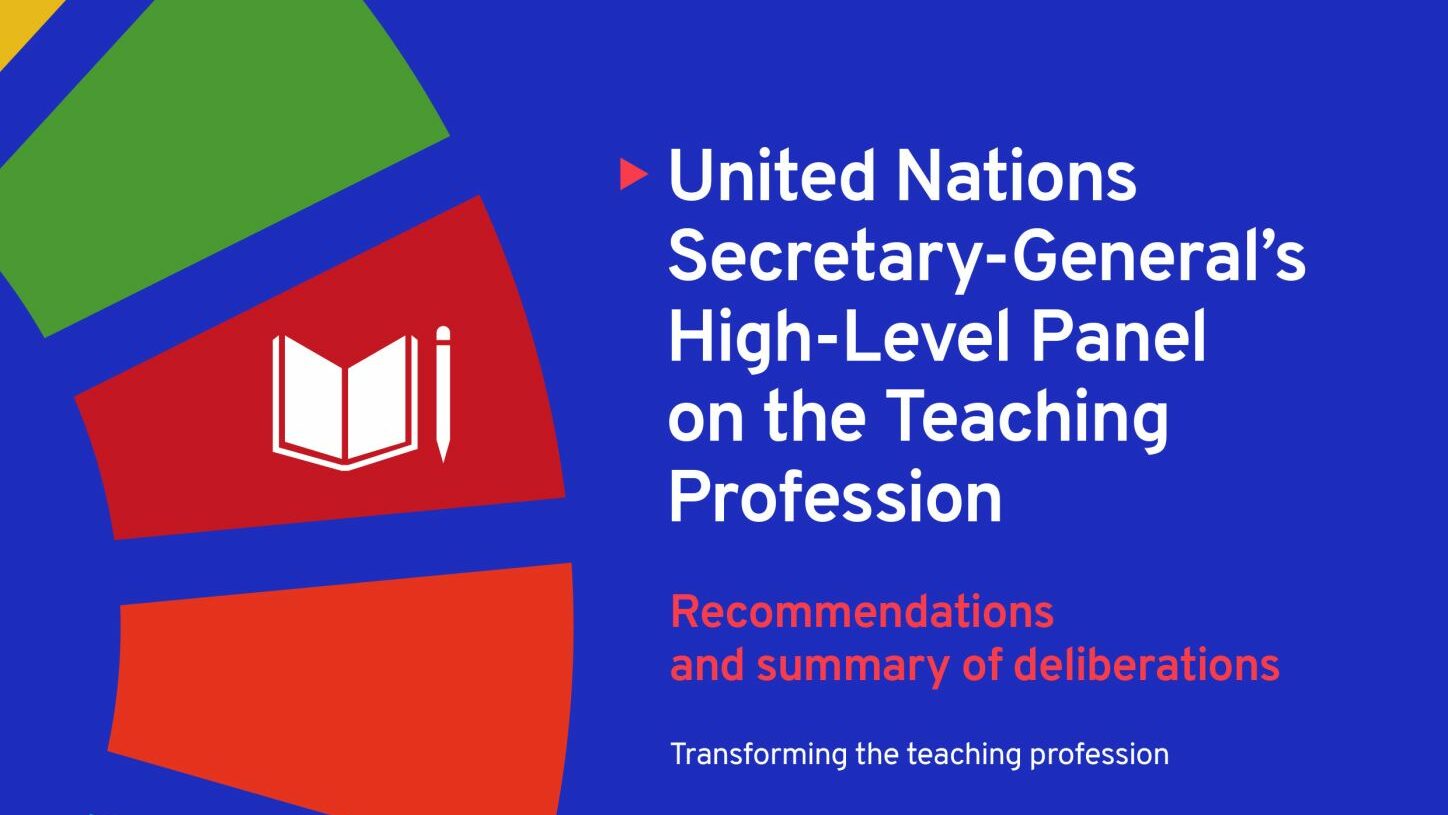
“Teachers play an essential role in the development of the greatest resource of all countries, the intelligence of their people” said the Secretary-General of the United Nations, António Guterres.
These words were spoken during the publication of the 59 recommendations from the High-Level Group on the teaching profession, which he established to formulate responses to the alarming global shortage of teachers we face today.
The High-Level Group is made up of experts such as ministers of education and labor, former presidents, academics, civil society representatives, members and representatives of unions such as Education International, students and teachers. The group issues a global call to action to improve the working conditions of the teaching profession. These recommendations aim to transform the teaching profession, namely:
- Valorize the profession.
- Increase salaries.
- Strengthen teachers’ capacities through training.
These three elements are considered essential to ensure the quality and sustainability of inclusive, equitable and efficient education systems.
Indeed, millions of teachers lack the support, skills, and continuous training needed to meet the requirements of educational systems. The recommendations address various global issues requiring urgent actions from governments.
Well-being at the heart of the Group’s recommendations
The concept of teacher well-being, covering various general themes, has been at the center of the Group’s deliberations in formulating these recommendations. It’s a responsibility that must be shared between employers, governments, administrators and the educational community, and not the sole responsibility of the teacher.
Firstly, this implies ensuring employment, good working conditions, and balanced workloads, with a focus on teachers’ physical, emotional and psychosocial well-being. Stakeholders must provide adequate support and appropriate access to professional development to adapt to current changes in the educational system.
A positive working environment, conducive to the well-being and morale of teachers, is as important as decent salaries. In practical terms, this would help combat poor working conditions such as work intensification, high student-to-teacher ratios, lack of job security and limited or insufficient resources.
All educational personnel must be involved
The Group emphasizes that the educational system is a community of practices where collaboration among all its members is necessary. Therefore, it urges educational authorities to work jointly with teachers, their organizations, and the entire educational staff to implement systemic well-being measures, concretely reflected in their working conditions.
Commitment to gender equality, equity, and diversity is omnipresent in all recommendations. The working environment must be inclusive, secure, and nondiscriminatory for all individuals in their diversity.
Considering the place that digital technologies occupy in our society today, the Group also examines their use in education and the role they should play within the education system. They must enable teachers to enjoy greater professional autonomy but must not replace essential human relationships.
Overall, the final recommendations, largely consensual within the Group, reflect global union demands and survey results such as the International Barometer of the Health and Wellbeing of Education Personnel (I-BEST).
You can download the document outlining the 59 formulated recommendations and a summary of the High-Level Group’s deliberations here.




